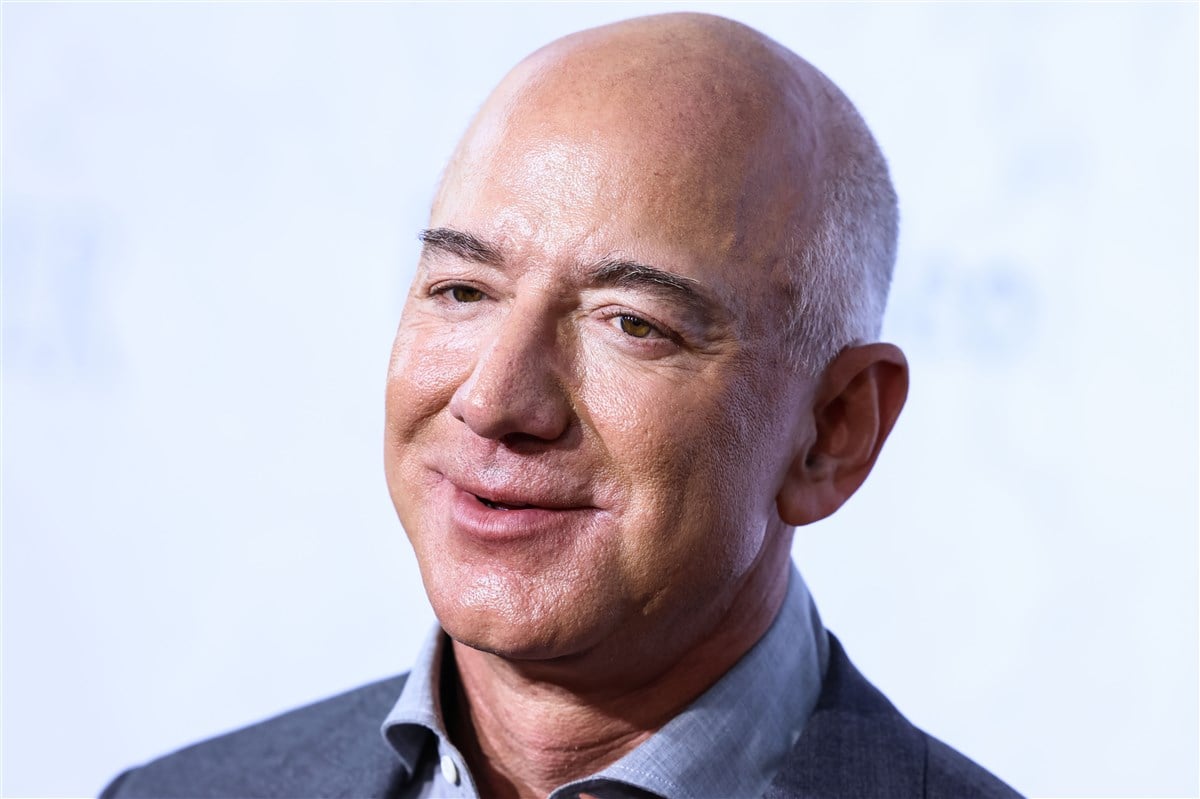Amazon’s share shuffle: Bezos’s billion-dollar stock sale
Jeff Bezos announces plans to sell Amazon shares while relocating to Miami for potential tax benefits but, so far, it is having no effect on AMZN stock
This story originally appeared on MarketBeat

Amazon’s (NASDAQ: AMZN) founder, former CEO, and current Executive Chairman, Jeff Bezos, has unveiled his plans to sell up to 50 million Amazon stock shares. This announcement comes amidst intense speculation regarding the billionaire’s financial strategies, particularly in light of his recent relocation to Miami. Amazon’s headlines suggest that his move has ignited discussions on his reasoning, the possible effect on the stock, and its potential tax implications.
Decoding Bezos’s billion-dollar divestiture
Jeff Bezos’s recent announcement to strategically sell 50 million stock shares has captured the attention of investors and Amazon’s analyst community. Jeff Bezos’s intention to sell is not simply a matter of adjusting his investment portfolio. Instead, it is a strategic financial maneuver that reveals his astute understanding of timing, market sentiment, and the foresight that characterizes one of the world’s most discerning business minds.
While significant in volume, this stock sale is part of a premeditated strategy executed through a pre-arranged trading plan. Amazon’s SEC filings included a process that offers protection for corporate insiders. These strategies, formally known as 10b5-1 plans, enable insiders to sell their holdings while safeguarding them from accusations of insider trading. By setting up this plan in advance, Bezos has ensured that his stock sale aligns with legal and ethical standards, offering a transparent lens through which the public and investors can view this sizable transaction.
The timing of Bezos’s sale is particularly noteworthy. Opting to liquidate a portion of his holdings during a period of pronounced stock appreciation, Bezos is maximizing the financial return on his initial investment in Amazon. This decision, while financially astute, also underscores the delicate balance between personal financial goals and the broader implications for Amazon’s stock value and investor confidence.
As the sale progresses, market observers and Amazon investors will watch for any ripple effects within the company or the border e-commerce industry. Though planned and announced in advance, the scale of Bezos’s divestiture holds the potential to influence Amazon’s stock price, albeit the immediate impact has been minimal. This muted response speaks volumes about the robustness of Amazon’s market position and investor faith in the company’s ongoing growth trajectory, independent of Bezos’s personal investment decisions.
Bezos’s masterclass in personal and corporate finance
The news regarding Jeff Bezos’ planned move to Miami, Florida, aligns with his stock sale strategy, creating a complex personal and financial maneuvering strategy. Bezos cited closer proximity to family and his aerospace venture, Blue Origin, when asked about his primary motivators. Bezos’s relocation also strategically aligns with financial incentives offered by Florida’s tax authority. Unlike Washington State, Florida boasts a tax landscape with no capital gains tax, starkly contrasting Washington’s 7% levy on capital gains exceeding $250,000. This strategic relocation is poised to afford Bezos significant tax savings on the proceeds from his stock sales, showcasing a complex understanding of leveraging state-level tax policies to optimize personal financial outcomes.
Amazon stays steady as she goes
The immediate market response to Bezos’s announcement was notably subdued, with Amazon’s stock price showing resilience in the face of potential uncertainties. This lack of reaction underscores the market’s perception of Amazon as a fundamentally strong entity whose value proposition extends beyond the actions of any single individual, even its founder.
However, the broader discourse triggered by Bezos’s decision has ignited a spirited debate among the public, investors, and financial experts. The conversation pivots around the implications of tax policies on the mobility of billionaires and the strategic considerations that influence their residency and asset management decisions.
Jeff Bezos’s move to Florida for its tax advantages is part of a broader trend among billionaires seeking to optimize their financial strategies in response to varying state tax policies. Bezos is not alone in his migration to the Sunshine State, a known tax haven due to its lack of state income tax, estate tax, or inheritance tax.
High-profile figures such as President Donald Trump, investor Carl Icahn, as well as former Sears CEO Eddie Lampert and Starwood Capital Group co-founder Barry Sternlicht, have all made similar relocations. These moves underscore a significant pattern where financial heavyweights are increasingly gravitating towards more tax-favorable environments. The billionaire migration is prompting discussions about the mobility of the ultra-rich and its implications on state economies and tax revenues. The situation has raised critical questions about economic equity, the societal role of taxation, and how tax policies can influence the geographic distribution of wealth.
Jeff Bezos’s decision to sell a portion of his Amazon stock and relocate to Florida has sparked a multifaceted conversation that extends far beyond personal finance. While the immediate market response suggests minimal impact on Amazon’s stock price, the broader implications of his actions raise critical questions about tax policy, economic equity, and the societal impact of wealth concentration. As the debate unfolds, Bezos’s maneuvers serve as a case study in the complex interplay between individual choices, corporate governance, and the regulatory landscape.

Amazon’s (NASDAQ: AMZN) founder, former CEO, and current Executive Chairman, Jeff Bezos, has unveiled his plans to sell up to 50 million Amazon stock shares. This announcement comes amidst intense speculation regarding the billionaire’s financial strategies, particularly in light of his recent relocation to Miami. Amazon’s headlines suggest that his move has ignited discussions on his reasoning, the possible effect on the stock, and its potential tax implications.
Decoding Bezos’s billion-dollar divestiture
Jeff Bezos’s recent announcement to strategically sell 50 million stock shares has captured the attention of investors and Amazon’s analyst community. Jeff Bezos’s intention to sell is not simply a matter of adjusting his investment portfolio. Instead, it is a strategic financial maneuver that reveals his astute understanding of timing, market sentiment, and the foresight that characterizes one of the world’s most discerning business minds.





